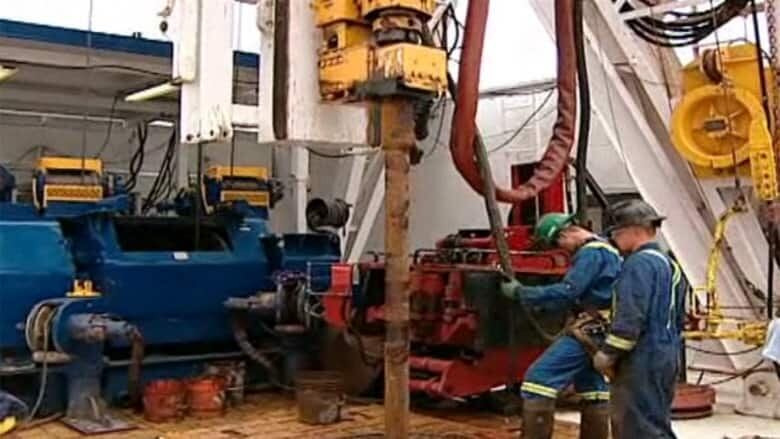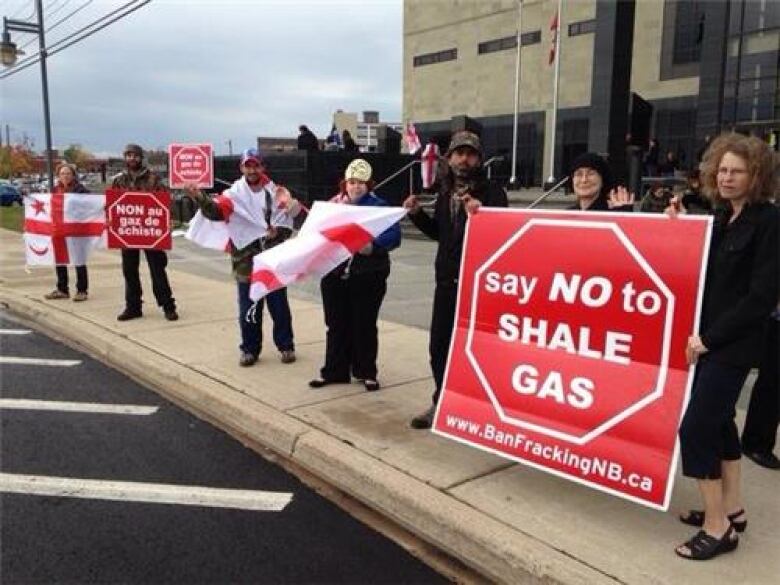Environmental, economic interests must be balanced in election: policy expert
David McLaughlin says it is a 'false choice' to put the environment or economy higher in importance

The New Brunswick government needs to involve the public and be relentless in showing concern about environmental impacts if it wants to tap into the potential wealth of its natural resources, according to one policy expert.
David McLaughlin, the former president and chief executive officer of the National Roundtable on the Environment and the Economy, said issues such as pipelines and shale gas development are always guaranteed to provoke controversy.
The Sept. 22 election is offering every indication of being decisive for New Brunswick in setting a pro- or anti-development path, he wrote in an op-ed for CBC News.

McLaughlin, who is a former deputy minister in the New Brunswick government and former chief of staff to Bernard Lord, said the provincial government can mitigate the controversy surrounding the environment and the economy by following some basic steps.
He said sustainable development is not about picking either the environment or the economy, it is both together.
It is a false choice to place one over the other. You have to find a way to do both. The starting point for New Brunswick should not be, No, until I am satisfied. It should be Yes, heres a way to satisfy, he said.
New Brunswick has not had strong economic growth because it has become radically pro-environment; it has not had it because it has not yet succeeded in becoming pro-sustainable development.- David McLaughlin
This is not nuance. This is a different and positive frame that cuts through the negativity and seeks to reconcile the competing views as a matter of policy.
The Progressive Conservatives have shown unabashed support for developing the shale gas industry and its forestry policies.
Meanwhile, the Liberals and the other parties have shown varying levels of concern about these industries, specifically around the shale gas industry.
The Progressive Conservatives have also trumpeted their Crownforestry strategy that was announced earlier this year. Tory Leader DavidAlward said in March the new plan would add 500 new forestry jobs and 1,200 construction jobs to the economy.
J.D. Irving Ltd., the provinces largest forest company, committed to $513 million in capital investments in its mills, most of which will be pumped into Irving Pulp & Paper in Saint John, after the announcement.
Alward has also repeatedly demonstrated his support for TransCanada Corp.'s plans to build the west-to-east pipeline. The proposed pipeline will send 1.1 million barrels of oil per day from Western Canada to refineries and export terminals in Eastern Canada.
Engaging communities
The policy expert said citizens and communities must be engaged in the process and given a formal role in the oversight process. It is important that governments send out information explaining the policies that are being examined.
McLaughlin said the government has to prove it isnt just paying lip-service to environmental concerns.

McLaughlin also criticized those who are calling for a moratorium on shale gas development. The highest-profile political leader advocating this policy is Liberal leader Brian Gallant.
True sustainable development recognizes that development has to take place while addressing environmental concerns. Moratoriums, by contrast, are lazy, insincere responses not in keeping with what sustainable development really means, he said.
New Brunswick has not had strong economic growth because it has become radically pro-environment; it has not had it because it has not yet succeeded in becoming pro-sustainable development.
McLaughlin said there are three reasons why the province should developits natural resource sector.
He said energy-driven economies are the fastest growing economies in Canada, provincial finances are better in these provinces and job growth is stronger.
Alberta, Saskatchewan and Newfoundland and Labrador are all benefiting from their energy industries.
Meanwhile, he said, New Brunswick is struggling at the back of the pack.
This is no one-government phenomenon. It is the result of a weak home-grown economic base, McLaughlin wrote.












_(720p).jpg)


 OFFICIAL HD MUSIC VIDEO.jpg)
.jpg)



























































































